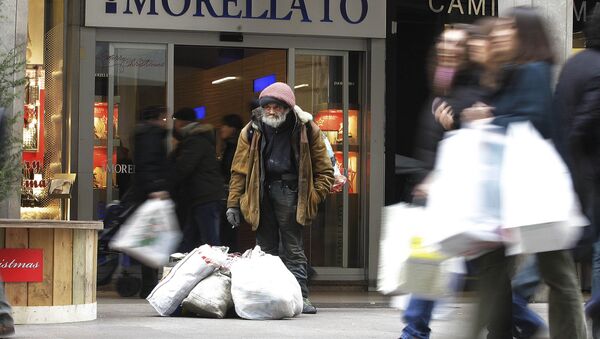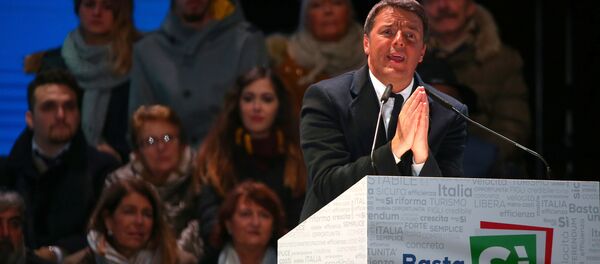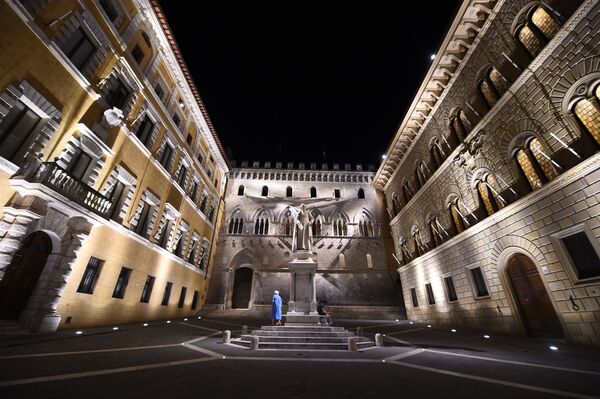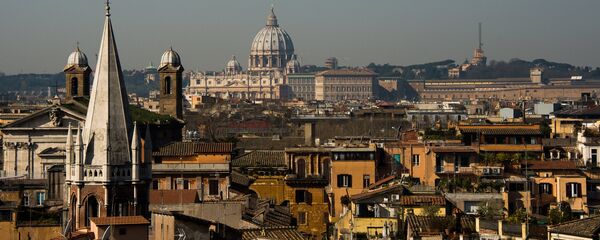Additionally, Raffaele Marra, a top aide of Rome's new Mayor was arrested on suspicion of corruption. These two incidents underscored the country's difficulties in dealing with graft.
"Let's try to keep track of how Italy's budget was spent in 2016. No doubt, part of it was embezzled by the politicians from the team that lost the Italian referendum," according to Fontana.
However, he went on to say, one should not forget how ordinary people were deceived by the Italian banking system. He recalled that many Italian banks went bankrupt in 2016, including those from Tuscany, Marche, Chieti and Ferrara.
As a result, at least 140,000 depositors lost about 430 million euros, while the heads of these banks were accused of corruption, Fontana said, adding that the heads of Sonsob Bank and Banca d'Italia also faced corruption charges in 2016.
"Monte dei Paschi di Siena, the oldest bank both in the Apennines, and in the world, was also on the verge of bankruptcy last year, with Italian taxpayers bearing the brunt of this," according to Fontana.
"In 2016, the Italians forgot what hope is as their country was ruled by hedonism and nihilism. Last year, at least 100 Italians committed suicide after they lost their jobs or savings amid politicians' allegations that the crisis is behind us," he said.
In this vein, Fontana pointed to serious consequences of the anti-Russian sanctions which led to many small and medium-sized Italian enterprises going bankrupt and losing about 3.6 billion euros in damages.
Italy's car, steel, food and clothing industries were hardest hit by the sanctions which in turn resulted in a decline in the country's GDP and other negative consequences, Fontana pointed out.
"In 2016, the main defeat was suffered by ordinary Italians who realized the fact that the government doesn't care about them and that the reforms they have been waiting for for years have not been implemented," Fontana concluded.
Meanwhile, Clemens Fuest, head of the German Institute for Economic Research, told German newspaper Der Tagespiegel that Italy may leave the Eurozone sooner or later and this could result in other European countries following suit.
"The level of welfare in Italy is now as it was in 2000. If nothing changes in this regard, the Italians can say at some point: 'We don't want the Eurozone anymore,'" the expert said.
This would be a great shock. "There is a danger that other states (like Greece, Portugal and Spain) will follow," the expert noted. "The eastern states are also increasingly distancing themselves from Europe. This is dangerous, because what Europe needs right now is stability," he added.
Never miss a story again — sign up to our Telegram channel and we'll keep you up to speed!







